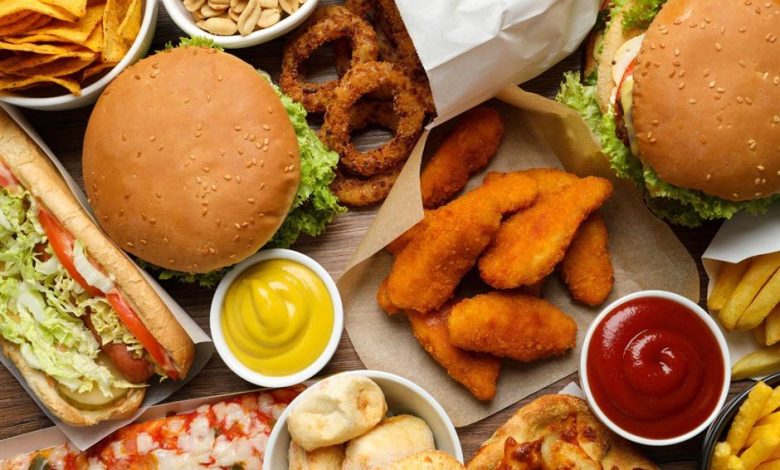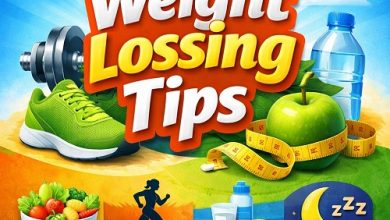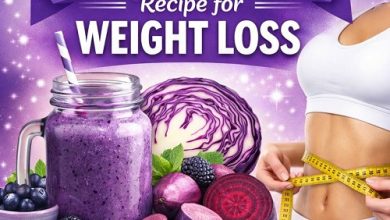7 Foods You Should Never Eat Before Bed If You Want Deep, Restful Sleep

Getting a good night’s sleep isn’t just about the right mattress, a cosy blanket, or a relaxing bedtime routine. What you eat before bed plays a massive role in how well you sleep. Some foods can disrupt your natural sleep cycle, cause indigestion, or even trigger nightmares. If you’ve ever tossed and turned at night wondering why you couldn’t drift off, your late-night snack might be the culprit.
Seven foods you should avoid before bedtime if you want deep, restful sleep. We’ll also cover what makes these foods problematic and suggest better alternatives that support healthy sleep.
Why Does Food Affect Sleep?
Before diving into the list, it’s important to understand why food impacts your sleep.
- Digestive activity: Eating heavy or hard-to-digest foods too close to bedtime keeps your digestive system working overtime, making it harder for your body to relax.
- Blood sugar spikes: Sugary foods can cause rapid increases and drops in blood sugar, leading to restlessness and early waking.
- Stimulants: Some foods and drinks contain caffeine or other compounds that stimulate your nervous system, making it difficult to fall asleep.
- Acid reflux: Certain foods trigger heartburn, which worsens when you lie down, disrupting your sleep.
Now let’s look at the seven worst offenders.
1. Caffeine-Rich Foods and Drinks
It’s no surprise that caffeine is enemy number one when it comes to sleep. While most people know to avoid coffee late in the day, caffeine hides in more places than you might think.
Where it’s found:
- Coffee and energy drinks
- Black and green tea
- Dark chocolate
- Some pain relievers and soft drinks
Caffeine blocks adenosine, a neurotransmitter that promotes sleep, and can linger in your system for up to six hours or more. Even a late-afternoon cup of coffee may still affect your ability to fall asleep at night.
Why it’s bad before bed:
- It delays the onset of sleep
- Reduces deep sleep (the most restorative stage)
- Increases the likelihood of waking up during the night
Better alternative:
Switch to caffeine-free herbal teas such as chamomile, valerian root, or lavender. They not only lack caffeine but also have calming properties that help you relax.
2. Spicy Foods
A late-night curry might sound tempting, but it’s a recipe for disturbed sleep. Spicy foods can irritate your digestive system, raise your body temperature, and trigger acid reflux.
Why it’s bad before bed:
- Spices stimulate digestion and may cause bloating or discomfort
- Capsaicin (found in chilli peppers) can increase your heart rate and body temperature, making it harder to cool down for sleep
- Spicy meals are a common trigger for heartburn, especially when you lie flat
Studies have even linked spicy food before bed to more vivid and disturbing dreams, possibly due to increased brain activity caused by digestive distress.
Better alternative:
If you crave flavour, go for mildly seasoned dishes earlier in the evening. Adding turmeric or ginger in small amounts can be soothing without causing discomfort.
3. Heavy, Fatty Foods
Greasy burgers, fried chicken, pizza, or chips may be delicious, but they’re tough on your digestive system.
Why it’s bad before bed:
- Fat takes longer to digest, which means your body is still hard at work when it should be winding down
- Eating heavy meals late increases the risk of acid reflux and indigestion
- Fat-rich meals can reduce the amount of deep slow-wave sleep your body gets
Eating high-fat foods also stimulates the production of digestive acids, which can flow back into the oesophagus when you lie down, causing that uncomfortable burning sensation.
Better alternative:
If you’re hungry, try a light snack with protein and complex carbohydrates, such as whole-grain crackers with hummus or a small bowl of Greek yoghurt with a drizzle of honey.
4. Sugary Treats and Sweets
Biscuits, cakes, ice cream, or even sugary cereals may seem like a comforting late-night snack, but they’re a sleep saboteur.
Why it’s bad before bed:
- Sugar causes blood sugar spikes followed by crashes, leading to restless sleep and night-time awakenings
- High sugar intake has been linked to more frequent nightmares and vivid dreams
- It can disrupt the balance of hormones that regulate your sleep-wake cycle
Even “healthy” sweet options like dried fruits can cause a quick surge in blood sugar, making your body more alert instead of sleepy.
Better alternative:
If you crave something sweet, reach for a banana with a sprinkle of cinnamon. Bananas contain magnesium and potassium, which help relax muscles, while cinnamon supports blood sugar balance.
5. Alcohol
Many people believe a glass of wine or a nightcap helps them fall asleep faster, but alcohol actually reduces sleep quality.
Why it’s bad before bed:
- Alcohol fragments your sleep, causing you to wake up more often
- It suppresses REM sleep, the stage linked to memory and emotional processing
- It can worsen snoring and sleep apnoea by relaxing throat muscles too much
Although you might feel drowsy after drinking, you’re more likely to wake up in the middle of the night dehydrated, restless, or needing the toilet.
Better alternative:
Try a warm, non-alcoholic drink like chamomile tea or a small cup of warm milk, which contains tryptophan, an amino acid that promotes serotonin and melatonin production.
6. Citrus Fruits and Acidic Foods
Oranges, grapefruits, tomatoes, and other acidic foods can irritate your stomach and trigger reflux, especially when lying down.
Why it’s bad before bed:
- Acidic foods relax the lower oesophageal sphincter, making acid reflux more likely
- They can cause a burning sensation in the chest or throat, keeping you awake
- Citrus fruits are also rich in natural sugars, which may cause a slight energy boost
Even a small glass of orange juice before bed can be enough to disrupt sleep if you’re prone to acid reflux.
Better alternative:
Opt for low-acid fruits like bananas, melons, or pears if you want a bedtime snack. They’re gentler on the stomach and may even help soothe heartburn.
7. Processed or Cured Meats
Pepperoni, salami, sausages, and bacon may not seem like obvious sleep disruptors, but they contain high levels of tyramine, an amino acid that can increase brain activity.
Why it’s bad before bed:
- Tyramine triggers the release of norepinephrine, a brain stimulant
- Processed meats are also high in salt, which can lead to dehydration and thirst during the night
- Their high fat content makes them harder to digest
In addition, many cured meats are packed with preservatives like nitrates, which have been linked to restless sleep and even migraines in sensitive people.
Better alternative:
If you want a protein snack, choose lean turkey or a boiled egg. Turkey contains tryptophan, which supports melatonin production and can help you feel sleepy.
What Should You Eat Before Bed for Better Sleep?
Now that you know what to avoid, let’s talk about foods that actually support deep, restful sleep.
- Bananas: Packed with magnesium and potassium, which relax muscles.
- Almonds or walnuts: Contain healthy fats and melatonin, the sleep hormone.
- Oatmeal: A warm, comforting food rich in complex carbs that boost serotonin.
- Herbal teas: Chamomile, passionflower, and valerian tea promote relaxation.
- Low-fat yoghurt: Contains calcium, which helps your brain use tryptophan to make melatonin.
The key is keeping your snack light, low in sugar, and easy to digest.
Tips for Better Night-Time Eating Habits
To maximise your sleep quality, it’s not just about what you eat, but also when you eat.
- Finish big meals at least 3 hours before bedtime to give your body time to digest.
- Stay hydrated during the day, but avoid drinking too much water right before bed to prevent night-time bathroom trips.
- Limit caffeine after midday, especially if you’re sensitive to its effects.
- Avoid late-night bingeing, as overeating can make you feel sluggish and uncomfortable.
- Keep your bedroom cool and dark, as a proper environment helps offset any mild food-related discomfort.
Final Thoughts
Your evening food choices can make or break your sleep quality. While it’s fine to indulge occasionally, consistently eating the wrong foods before bed—like caffeine-rich drinks, spicy meals, fatty snacks, or alcohol—can leave you tossing and turning.
Instead, focus on light, sleep-friendly snacks that promote relaxation and balance your blood sugar levels. Remember, good sleep isn’t just about what you do when you’re in bed—it starts with the choices you make throughout the day.




